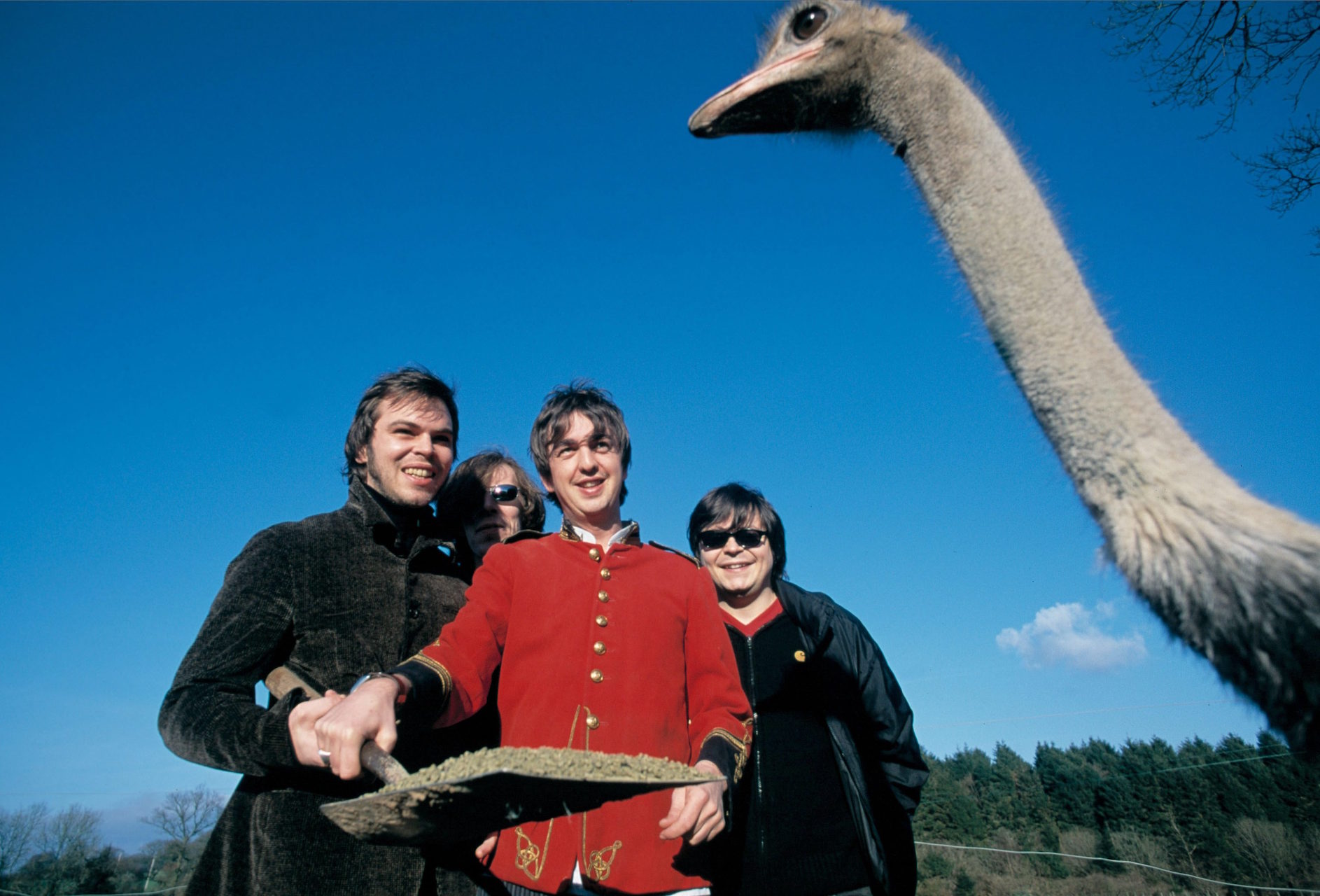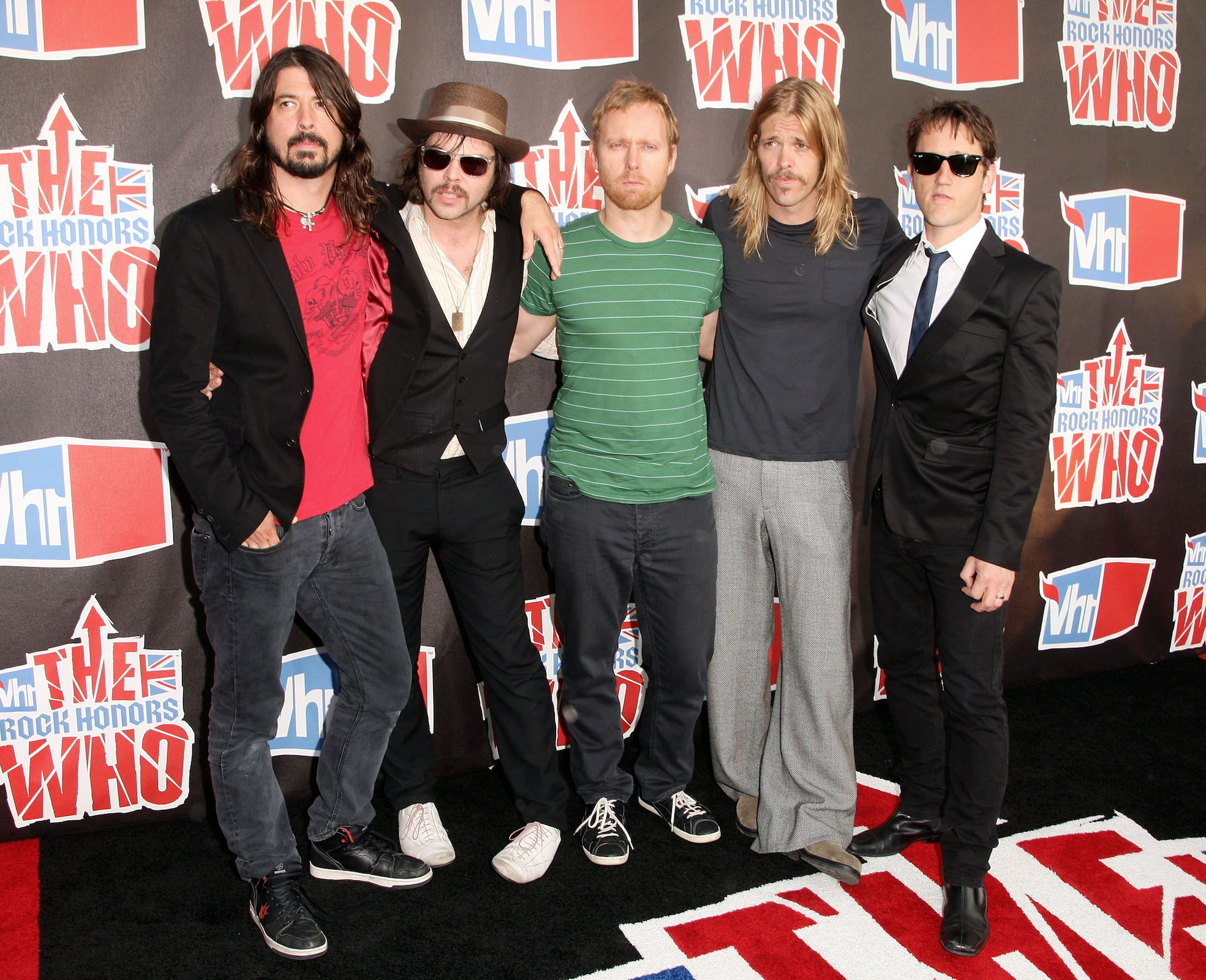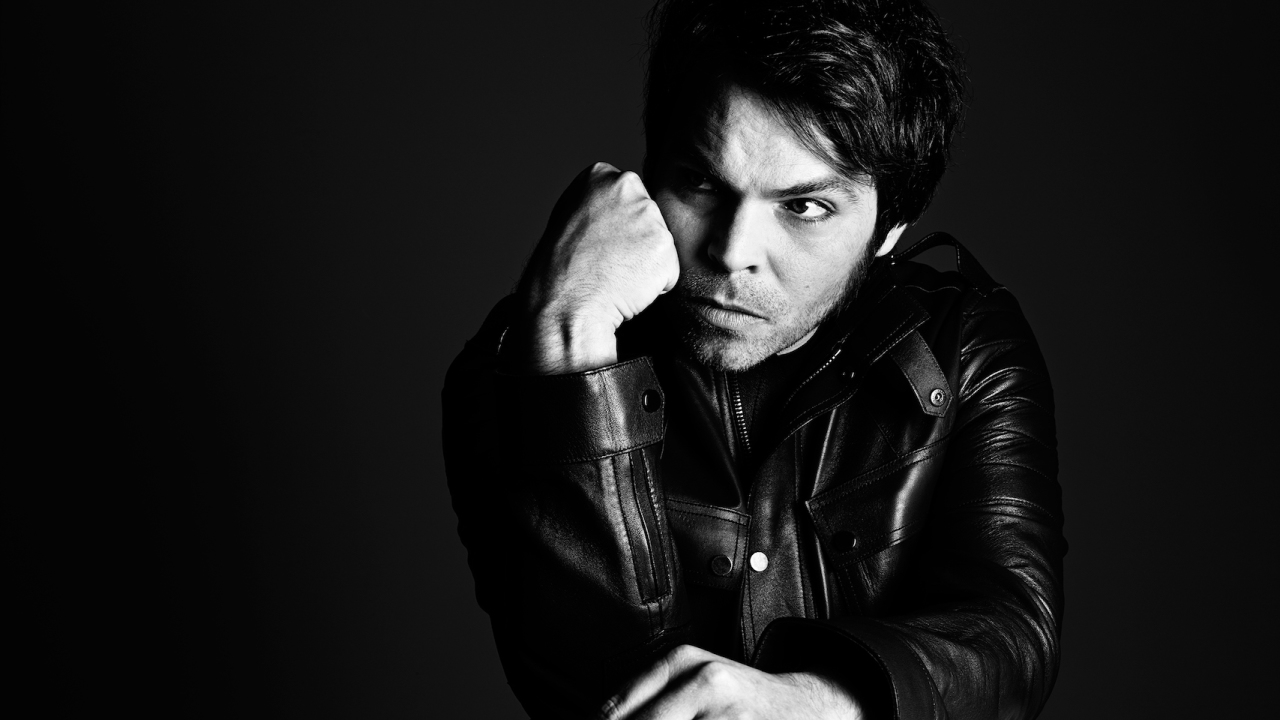Gaz Coombes, 39, is the former frontman of Supergrass. His second solo album, ‘Matador’ has been nominated for a Mercury Prize.
“Listening to The Cure, Dinosaur Jr. and The Smiths made me want to start my own band. But I could relate more to The Wedding Present and Inspiral Carpets, because Supergrass were ragged and raw in the beginning and we could really appreciate those bands’ almost throwaway attitude. That’s what we had on [Supergrass’ 1995 debut] I Should Coco, though we were mostly inspired by the energy that the three of us had in the room. Danny [Goffey] played so fucking loud on the drums that I’d have to turn my guitar up, then I’d have to sing louder to make myself heard, shouting over the people doing backing vocals. All of a sudden, we had the Supergrass sound.”

“The ‘90s was a great time for guitar bands. You have to remember that the idea of being on Top Of The Pops with loads of other indie bands was very unusual. Was the whole Britpop thing an albatross for us? I don’t have any inclination to escape from that, because Supergrass were always on the fringes of it. Britpop bought guitar music back, though I think the industry bubble had to burst after the ‘90s. It was probably the Robbie Williams deal with EMI that broke it.”
**“There’s a song on Matador called Seven Walls, which starts off with a claustrophobic feeling of being stuck in a room with someone you love and needing to get out and have a mad night together. **I guess that’s the romanticism of it, an adventure with a girl you love. I’ve been in tears listening to songs before, even songs without lyrics. In a way it feels almost magical and I’m lucky to be able to do that. I really admire film directors who can take you on a journey for a couple of hours and reduce you to tears, but do it in a way that they maybe didn’t intend to. That’s what I wanted to do with Matador.”
“My dad and my grandad were both piano players. Me and my brothers played too, so we’d often have these old-school family gatherings ‘round the piano and the oldies would always drink too much. I got to a fairly decent level on piano, but just became bored with it. Then I saw a guitar in a music shop and it was so much cooler. One of our uncles went to live in the Bahamas around the same time and left his records at our house. I was told not to go anywhere near them, but I used to sneak down at night and have a sneaky joint while listening to Neil Young.”
“If you were a new band in the ‘90s you might be able to buy some cheap equipment, play some gigs and get some interest from a record label. When we got our first single deal with [pre-Supergrass band] The Jennifers, it didn’t feel huge. The first time it felt real was when we did a Supergrass gig at the Jericho Tavern in Oxford. We knew three or four major labels were travelling from London to see us, so we had this weird combination of my brother and his mates moshing in the pit at the front, then a lot of crossed arms and chin-scratching at the back. Soon after that we got the six-album deal with EMI. These days you have to do so much by yourself and it can breed desperate moves. Social media can create a certain neediness, but I don’t blame new bands for feeling like that, because they often don’t have any choice. There’s no one there to help them out financially. It’s a very different climate now.”
“Believing in yourself and what you’re doing is something that I’ve had to learn over time. After doing two records on my own without having the safety net of a band behind you [2012’s Here Come The Bombs and this year’s Mercury-nominated Matador], I’ve realised that the main thing is to be really natural in the studio. Don’t feel pressured by trying to satisfy any particular market. Just do what comes naturally, be true to yourself and learn to relax.”
“In 2008, Supergrass played in LA and I got a call the next morning from Foo Fighters’ management – Dave Grohl’s voice had gone and they asked if I could step in at a special gig The Who were doing that night. At first I was like, ‘Fuck man, I’ve only had two hours sleep!’ So I decided to sleep all afternoon, take a shower, slap myself on the face a few times and get to the soundcheck. Then I did the show [Coombes sang Bargain], which was bizarre and amazing at the same time. I had this incredible day hanging around with Pete Townshend in his Winnebago, with people like Jack Black. It turned out they were big Supergrass fans. Jack Black even more a Supergrass T-shirt on the Jay Leno Show. It was like the Premier League of rock ’n’ roll.”

“To The Wire [from Matador] skirts around the passing of my mum and how you deal with that. When she died and my dad left, I couldn’t let the family house in Oxford go. I needed to keep hold of it. In the seven years since I bought the house we’ve done lots of changes and made it our own. So it doesn’t feel so much like I’ve gone full circle, more like I’ve moved forward. Yes, there are elements of Supergrass that I miss – like the USA tour of ‘95, playing with Foo Fighters and doing Wembley Stadium – but there’s so much going on at the moment that I don’t spend too much time looking back. To the annoyance of my family, I keep running down to the studio to put ideas down. I’m not particularly good at switching off, but that’s the nature of having a home studio. I always seem to have music on my mind.”
Gaz Coombes’ album Matador is out now. He’s on tour until December 14. For details, visit his website.

